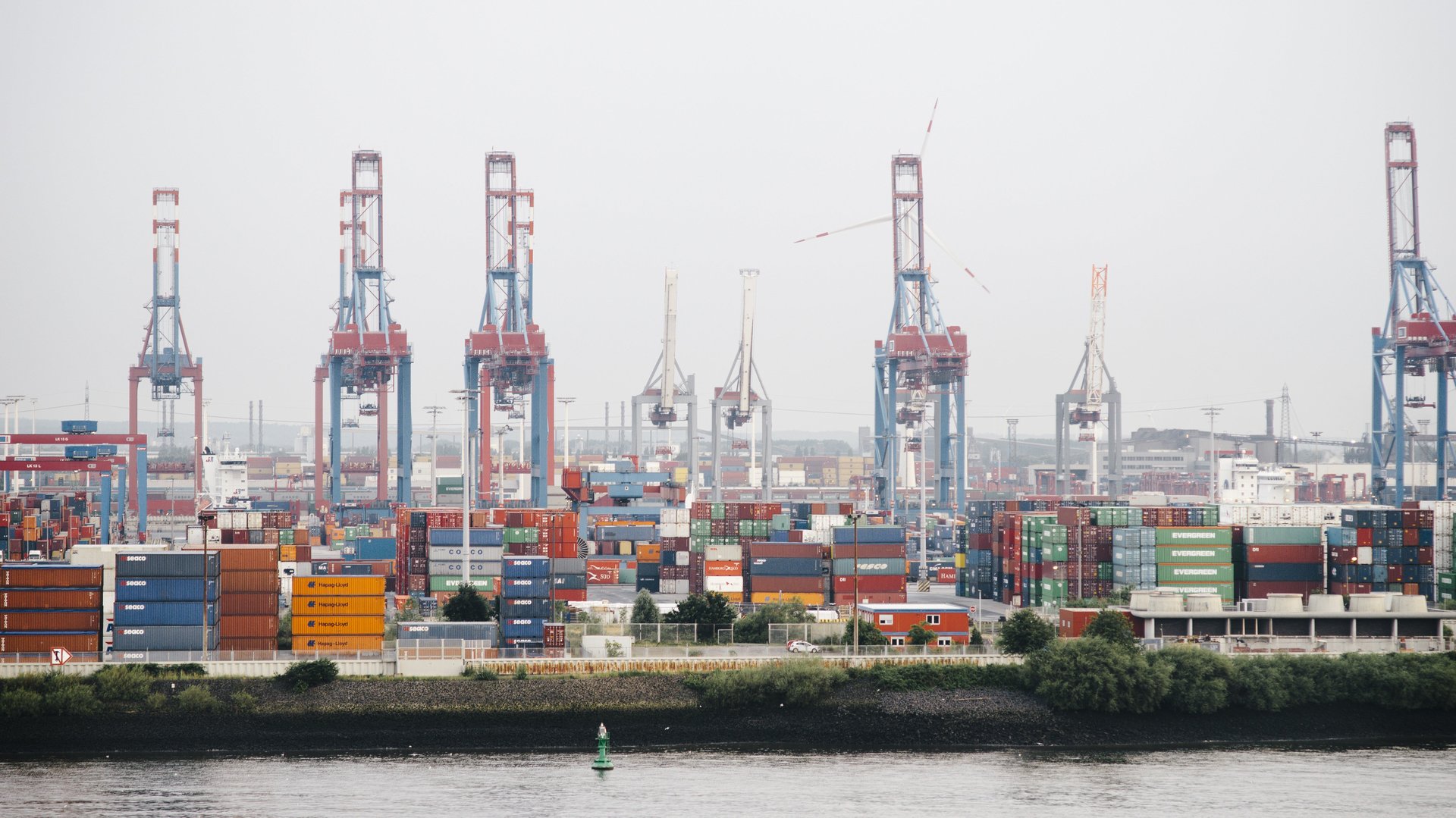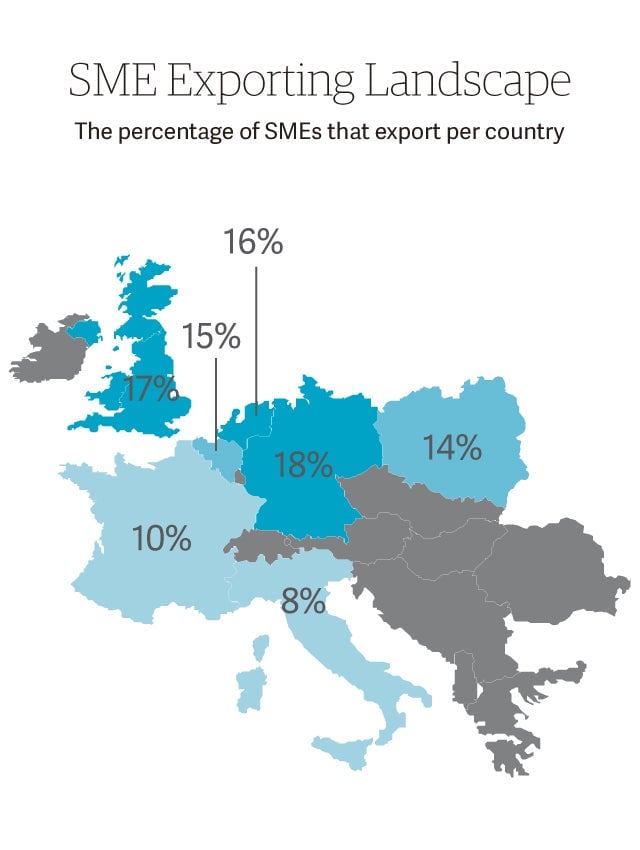Tech helps small businesses export like their larger counterparts
Big and small—the economic recovery from the eurozone’s upheaval in recent years has progressed on different scales. Large growth trends continue, albeit slowly, while the engines behind them are rooted in individual spending and small business developments. Exports have played a crucial role.


Big and small—the economic recovery from the eurozone’s upheaval in recent years has progressed on different scales. Large growth trends continue, albeit slowly, while the engines behind them are rooted in individual spending and small business developments. Exports have played a crucial role.
The euro remains relatively weak, helping those looking to sell abroad, and small- and medium-sized enterprises (SMEs) have ably stepped in. Their global ambition is a good thing, because SMEs dominate Europe’s economy—they account for 99% of businesses (21.6 million) and two-thirds of employees (88.8 million), according to the European Commission’s SME Performance Review.

The European Commission’s review identifies exports as the primary (and almost only) source of growth in Europe from 2008 to 2013. The importance of sustaining this growth is articulated in the UPS 2015 European SME Exporting Insights Study. The survey of European SME leaders emphasises the economic importance of exports in the region and the unique ability of versatile and agile SMEs to capitalise on current opportunities—and ensure even more of an economic rebound.
China and Africa present large export opportunities (particularly for businesses operating in countries without existing ties to African markets), and the US market is appealing as well. However, this is easier said than done for SMEs with expansion and logistical challenges that larger enterprises have already overcome.
Technology places these opportunities within reach—the UPS study found that SME exporters in Europe now favour online sales more than any other channel. This is where customers are today, and the web helps level the playing field as quality and engagement win out over physical convenience and big marketing budgets.
Not long ago, SMEs might have worried that an e-commerce focus would exclude potential customers who are concerned about online security or just not experienced with the web. New security initiatives and awareness, as well as broad internet penetration, have significantly neutralised these issues.

SMEs are now focused on ensuring that e-commerce and other export shipments arrive safely. This topped the list of concerns in five of seven markets surveyed by UPS (and was second in the remaining two, Germany and Poland). Delivery speed and cost is also a key factor, and these concerns increase for SMEs targeting the extra-EU export market that is so essential for future growth.
Because SMEs face substantial investment and experience gaps compared to larger competitors when eyeing export business, a logistics partner like UPS can step in with ready-made solutions that won’t sacrifice crucial small-business agility. UPS offers a range of shipping options which allow SME’s to balance speed and economy, customs brokerage expertise when entering new markets and other resources such as the Export Engagement Toolkit to helps support new sales opportunities abroad.
The role of Europe’s SMEs has undoubtedly become a big part of its recovery story. The push for lasting stability and expansion will come down to smaller players making larger risks across borders near and far—and the ones who are ready to deliver.
This article was produced on behalf of UPS by the Quartz marketing team and not by the Quartz editorial staff.